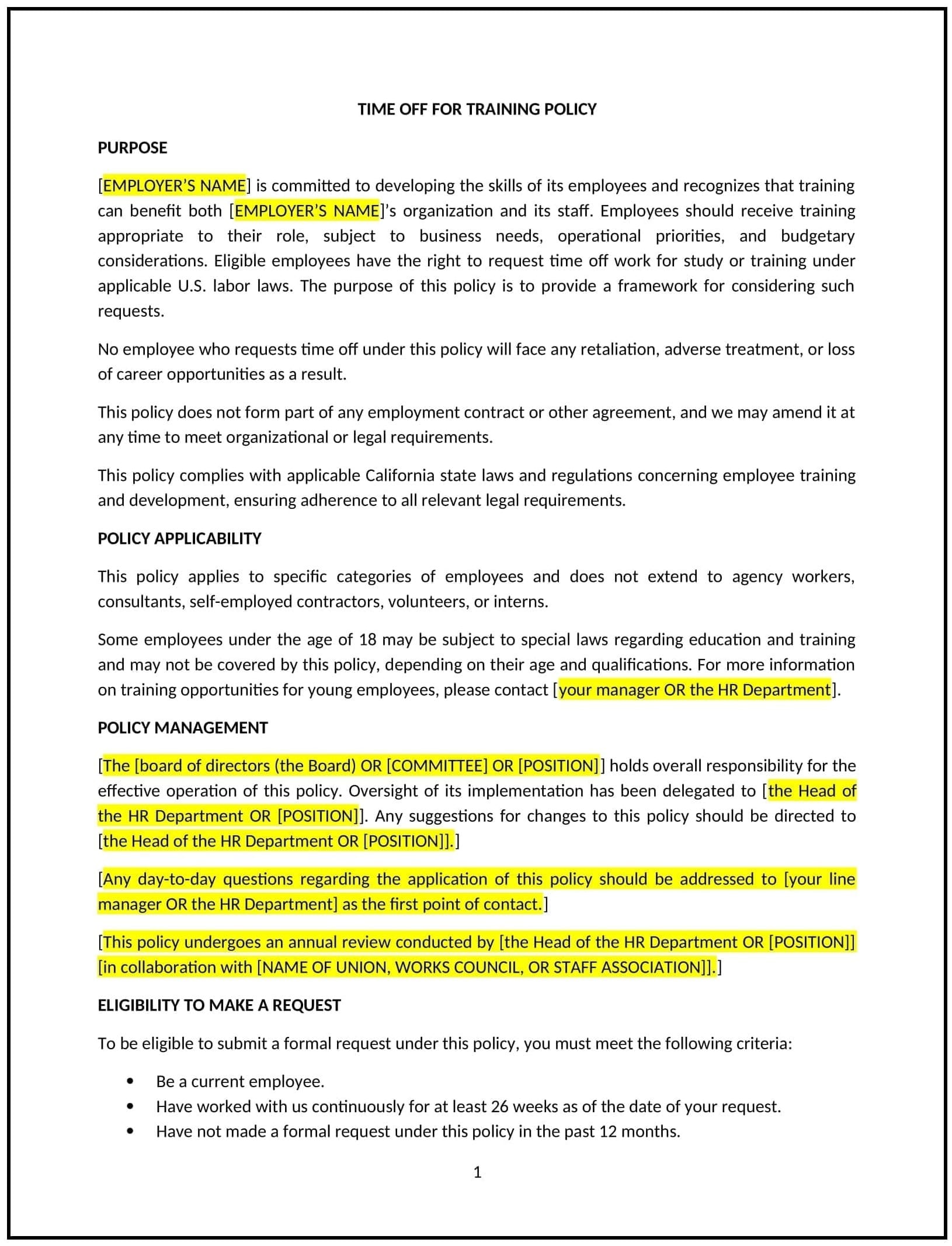Time off for training policy (California): Free template
Got contracts to review? While you're here for policies, let Cobrief make contract review effortless—start your free review now.

Customize this template for free
Time off for training policy (California)
In California, a time off for training policy provides businesses with guidelines for granting employees leave to participate in job-related or legally mandated training programs. This policy supports compliance with California labor laws, such as the Fair Employment and Housing Act (FEHA), which may require training for compliance purposes, and other laws that promote workforce development.
This policy outlines eligibility, procedures for requesting training leave, and expectations for employees and the business during the leave period. By implementing this policy, California businesses can support professional growth, maintain compliance, and enhance workforce skills.
How to use this time off for training policy (California)
- Define eligible training: Specify the types of training covered under the policy, such as mandatory compliance training, professional development courses, or certifications required for the role.
- Communicate employee rights: Ensure employees understand their rights to participate in job-related training, including state-mandated sessions such as sexual harassment prevention training.
- Outline request procedures: Provide steps for employees to request time off for training, including advance notice and necessary documentation.
- Address pay and benefits: Clarify whether time off for training is paid or unpaid, and how benefits will be maintained during the leave period, in compliance with California laws.
- Monitor compliance: Ensure all legally required training is completed and properly documented for compliance purposes.
Benefits of using this time off for training policy (California)
This policy offers several advantages for California businesses:
- Supports compliance: Reflects California labor laws requiring specific training programs, such as harassment prevention training for supervisors and employees.
- Enhances skills: Encourages employees to improve job performance and gain new competencies through training opportunities.
- Promotes fairness: Provides consistent guidelines for managing training-related leave requests across the organization.
- Reduces risks: Minimizes legal liabilities by ensuring all mandated training is completed on schedule.
- Boosts morale: Demonstrates the business’s commitment to employee development and growth.
Tips for using this time off for training policy (California)
- Reflect California-specific laws: Address requirements for state-mandated training, such as harassment prevention training under FEHA.
- Document training records: Maintain accurate records of completed training sessions to ensure compliance and support workforce planning.
- Communicate opportunities: Share information about available training programs and how employees can participate.
- Use flexible scheduling: Allow for alternative training schedules to minimize disruptions to business operations.
- Review regularly: Update the policy to reflect changes in California training requirements or workplace practices.